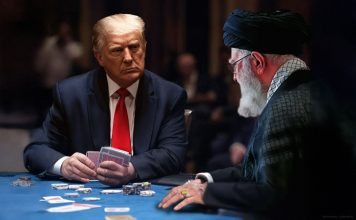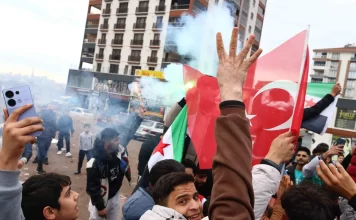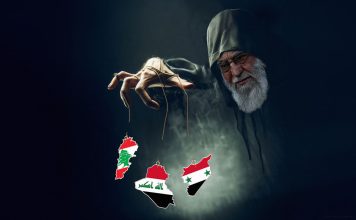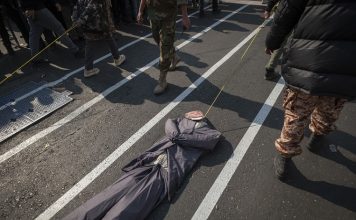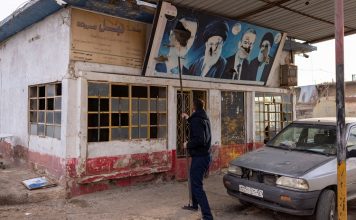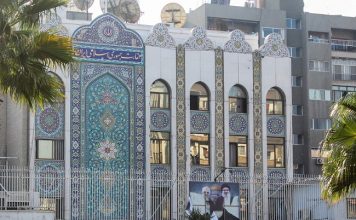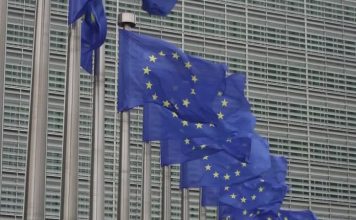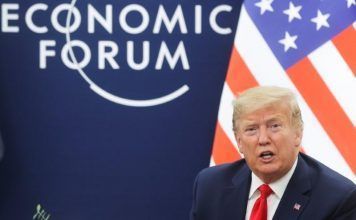By Ahmad Rafat
South Korea has yet to transfer the $6 billion it owes Iran to a Swiss National Bank account under the unwritten agreement reportedly reached between Tehran and Washington. The money will then be deposited in several Qatari bank accounts, which Iran could access to purchase items not included in the sanctions list.
Meanwhile, authorities moved several Iranian-American dual nationals held hostage in Iran to a hotel in Tehran recently, but have prevented them from leaving the country so far. Still, Iranian and American officials insist everything is moving as planned.
Despite daily assurances by Tehran and Washington, there is yet to be a clear roadmap to realizing the unwritten agreement — whose contents remain secret — reached after two years of negotiations between the Iranian and American officials in Muscat, the Sultanate’s capital.
Ali Bagheri Kani, Iran’s Deputy Foreign Minister for political affairs, and Brett McGurk, U.S. National Security Council (NSC) Coordinator for the Middle East and North Africa, represented their countries in the unofficial negotiations.
The two-year talks included other topics besides releasing five Iranian-American dual nationals for the unfreezing of $6 billion owed to Iran by South Korea. There is no shortage of speculation around those topics, given that parties involved in the talks have yet to release details.
[aesop_image img=”https://kayhanlife.com/wp-content/uploads/2023/08/khamene-biden-no-425_cover.jpg” panorama=”off” credit=”Illustration by KL./” align=”center” lightbox=”on” captionsrc=”custom” captionposition=”left” revealfx=”off” overlay_revealfx=”off”]
Some believe that besides unfreezing $6 billion owed by South Korea to the Islamic Republic, the U.S. has agreed to free 12 Iranian citizens and Iranian-American dual nationals who are in U.S. federal prisons or awaiting trial.
American authorities have accused the 12 individuals of laundering money for Iran or helping it bypass sanctions imposed on the country by former U.S. President Donald Trump in 2018.
Besides South Korea’s $6 billion, Iran is owed $10 billion from selling its gas and electricity to Iraq. The Iranian government has reportedly received $2.4 billion from Iraq so far.
The International Monetary Fund (IMF) also holds $7 billion in Iranian money.
According to some Japanese media outlets, there have been negotiations on unfreezing the $3 billion Japan owes Iran. Bagheri Kani claims that Iran has access to all of its previously frozen assets, adding that Iran has kept some funds in several bank accounts in third-party countries out of choice, including in Italy, Spain, Greece, India, China, and Taiwan.
Multiple theories and contradictory accounts of how Iran accesses its unfrozen funds have been circulating among experts. U.S. Iranian officials insist that Iran can use the unfrozen funds to buy only food, medicine, and medical equipment.
Mohammad Marandi, a member of Iran’s negotiating team with the U.S., claims that there are no restrictions on how Iran can spend the unfrozen funds, insisting that Tehran is not accountable to anyone.
Under the agreement, Iran could use the $2.4 billion it received from Iraq to buy food and medicine, but some of that money was reportedly given to pilgrims who traveled to Iraq to take part in the Arbaeen ceremony (marking the 40-day mourning period for the Prophet Mohammad’s grandson and Shia third Imam Hussein).
More information is needed about other issues included in these talks. What is certain is that Bagheri Kani and McGurk must have discussed contentious issues, including Iran’s nuclear program.
A step-by-step program is the logical outcome of the talks, given that no one is even considering reviving the 2015 Joint Comprehensive Plan of Action (JCPOA), the Iran nuclear deal. It would be impossible and irrational to reboot the JCPOA.
Some have speculated that Iran has agreed to keep its uranium enrichment below 60 percent. In its forthcoming meeting on Sept. 11 in Vienna, the board of governors of the UN nuclear watchdog, the International Atomic Energy Agency (IAEA), will confirm whether the Islamic Republic has complied with the agreement or broken its promise as in the past.
Since it was established more than four decades ago, the Islamic Republic has signed many agreements and made many promises, only to break them all.
As part of the recent agreement, the Islamic Republic has reportedly promised to stop all direct and proxy attacks on U.S. military forces and personnel in the region, especially in Iraq and Syria.
In comments reported by the London-based Al-Araby Al-Jadeed (A New Arab) news website recently, senior members of the Iraqi Popular Mobilization Front (PMF) alleged that during his visit to Baghdad and Karbala in mid-August, the commander of the Islamic Revolutionary Guards Corps Qods Force (IRGC-QF), Brigadier-General Esmaeil Ghaani, ordered Shia militias under his command to stop attacking U.S. military forces and bases in Iraq.
EU Can Proscribe Iran’s Revolutionary Guards Without Delay, Lawyers Say
The U.S. has reportedly agreed to overlook Iran’s bypassing of sanctions on its oil sales if Tehran stops enriching uranium beyond 60 percent. Iran’s oil exports have dropped to 300,000 barrels a day since the sanctions were introduced.
Although sanctions have not been lifted officially, organizations monitoring global oil transport have reported that Iran exported 1.4 million barrels daily in July and 1.6 million barrels in the first two weeks of August, reaching its current maximum daily oil output capacity.
Iran can only produce 3.4 million barrels of oil a day, given the absence of investment in the oil industry, and its old and rundown drilling equipment. Of that total, between 500,000 and 1 million barrels are for domestic consumption.
The U.S. and the West do not seem to have a strategy to resolve their main strategic problem with Iran. The failure of the 2015 nuclear deal is the perfect example of an impractical strategy to resolve problems with the Islamic Republic.
After the JCPOA fell apart, the U.S. and the West concluded that the only path to success was through agreements that entailed restrictions and time limits and resulted from a “reciprocal interaction” (tit for tat.)
It is impossible to reach a mutually beneficial understanding with the Islamic Republic for various reasons, including anti-Western sentiment, which has been at the regime’s core since its inception over 40 years ago. When dealing with Iran, the U.S. and Europe must choose between a bad agreement and a worse agreement.
Neither rolling out the carpet nor imposing crippling sanctions have brought the Islamic Republic’s theocratic regime to its knees. Military threats have prompted Tehran to provoke turmoil in the countries in the region. The problem for the West is the very nature of the regime, which a large proportion of the Iranian people is seeking to overthrow.
That process started with the nationwide protests sparked by the death of Mahsa (Zhina) Amini while in the custody of the Morality Police in Tehran on Sept. 16, 2022. While the national uprising has faced extraordinary challenges since then, it is highly likely that it will, eventually, succeed.

